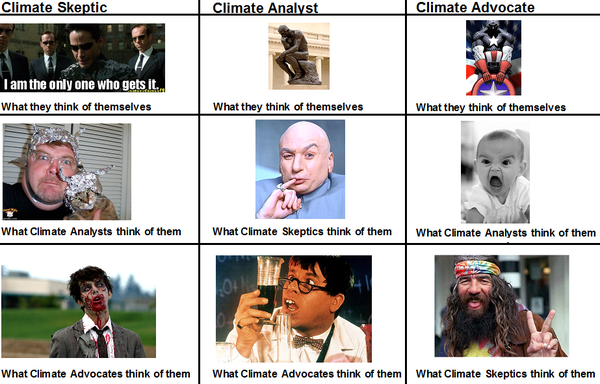Hey all, it's me. Yeah me. Remember way back when I actually contributed to this blog? I know I've been absent for quite some time--it's interesting how unplanned breaks can balloon into extended sabbaticals--but here I am, back in action.
So what have I been up to these past six months, you ask? Well in October I started working at the Connecticut Department of Energy and Environmental Protection. I have contributed to numerous projects so far, including writing press releases and other copy for the Communications Office, administering an energy efficiency program charged with reducing energy consumption in state-owned buildings by 10 percent in the next year, and I'm also the mind behind a massive restructuring effort for the energy-related content on the agency's website.
Overall, working at DEEP has been an incredible experience. Having a boss and supervisors who trust in my abilities and challenge me to meet their high expectations is rewarding. It's also been a unique opportunity to see the inner workings of government itself, often given a bad rap for being a bloated mess of bureaucracy and red tape. My impression of DEEP couldn't be further from that perception. Thanks to a commitment to environmental goals from Connecticut Governor Dannel Malloy and the leadership of DEEP Commissioner Daniel Esty, the Department is well-poised to drive real change in a state in desperate need of better economic performance. And that's the thing, environmental policy and programs are viewed as our ticket out of the recession. The conversation is about how we achieve environmental and energy goals while stimulating local job growth. My time at DEEP has shown me how there is a growing opportunity for E&E policy action at the state level, especially given the failure of Congress to pass any meaningful and comprehensive climate legislation.
Now that I've updated you on one of the major goings-on in my life since I left you, let's get down to business. For my first post post-hiatus (see what I did there), let's discuss Analysts versus Advocates.

University of British Columbia professor George Hoberg recently posted this explanation of climate-political mindsets to his blog, GreenPolicyProf. Hoberg describes how there are three approaches to climate politics--skeptic, analyst, and advocate. He devotes most of the post to the last two, and describes skepticism as "too mysterious" to warrant extended investigation. As someone who has assumed both the analyst and advocate roles in the last year even, I found the piece an interesting critique of each.
Here are the fundamental differences between analysts and advocates, as explained by Hoberg:
The logics of analysis and advocacy are fundamentally different. The analyst is guided by aspirations for truth and well-reasoned argument, and guided largely by the value of maximizing the cost-effectiveness of solutions. They chaff against exaggerations and misuse of data by advocates on all sides, and search for the best reasoned argument for the most efficient path forward.Using the Keystone XL Pipeline debate as an example, he says the typical analyst mind evaluates the proposal as follows. We need oil--> building it won't significantly contribute to climate change--> Canada is a friendly trade partner --> approve the pipeline. Advocates on the other hand view the pipeline as a symbol for the larger environmental crises, and use it as political capital to push their overall message.
In contrast, the climate advocate is trying to maximize political leverage in an effort to foster systemic transformation of the energy system. The logic of political action and movement building is different from the logic of policy efficiency. The advocate works to strategically frame problems and solutions that work politically, not those that best adhere to the standards of analytical rigor. Frequently, this involves exaggerated claims that aggravate the analyst.
Hoberg again:
[Bill] McKibben and his allies didn’t choose to draw a line in the sand on Keystone XL because it was the most cost-effective policy to reduce GHG emissions. They picked it because it made political sense given the state of the climate movement in US and global politics. Having failed so spectacularly at Copenhagen and then in the US Congress to get meaningful action, McKibben and Co. recognized that to have meaningful success, more direct action would be required to galvanize the intensity of preferences at the grassroots level needed to foster a powerful social movement. Keystone XL turned out to be a perfect short-term vehicle for that. It was a point of leverage they could use to focus concentrated pressure, and it turned out to be a spectacular success on its own terms.As someone still defining his professional and personal identity, I'd like to think I combine the advocate's passion for positive environmental change with the analyst's pragmatism. I don't think the two are necessarily exclusive. In my mind the philosophical construct is more a sliding scale than distinct silos. I'll continue to think about how I define my approach to solving the environmental challenges we face in the 21st Century, and I encourage you to do the same.
When I set out to write this post I was worried I would be out of blogging shape. I really have missed writing on a regular basis on a topic I care deeply about. I can't promise anything, but I do plan to post more and I have a few ideas in the works so we'll see where we end up.
Happy reading, reflecting, world-changing.
No comments:
Post a Comment